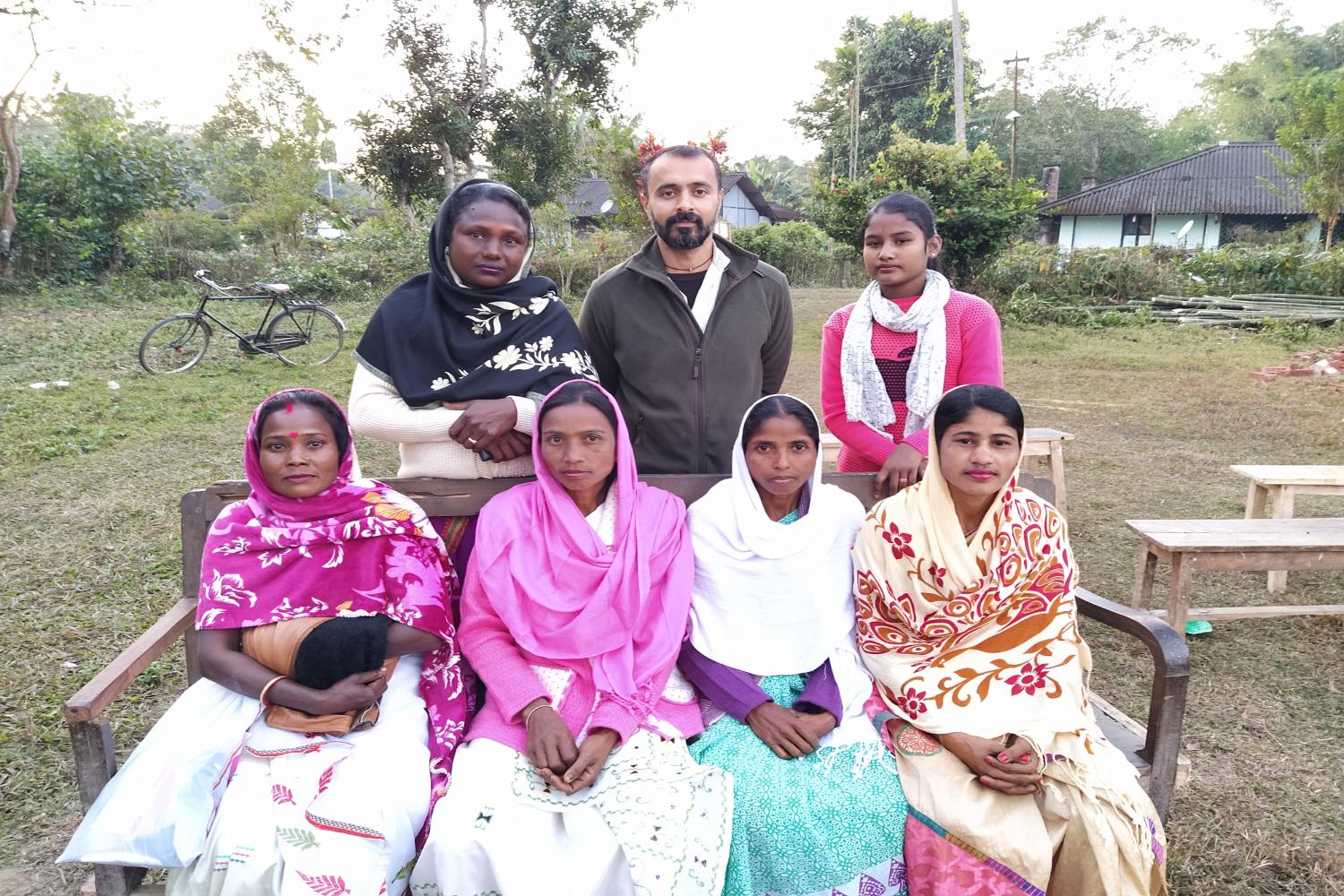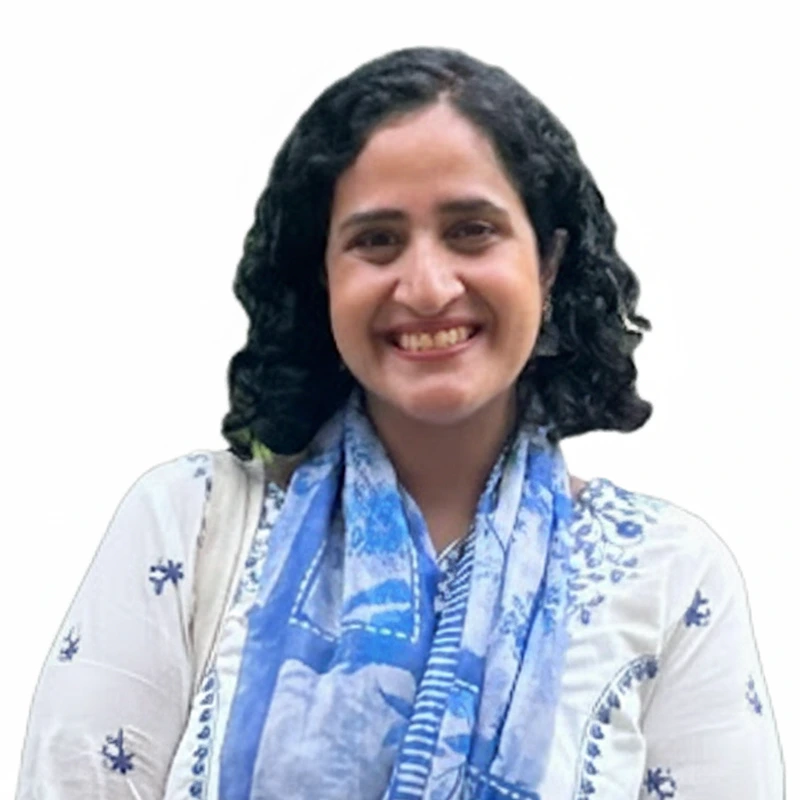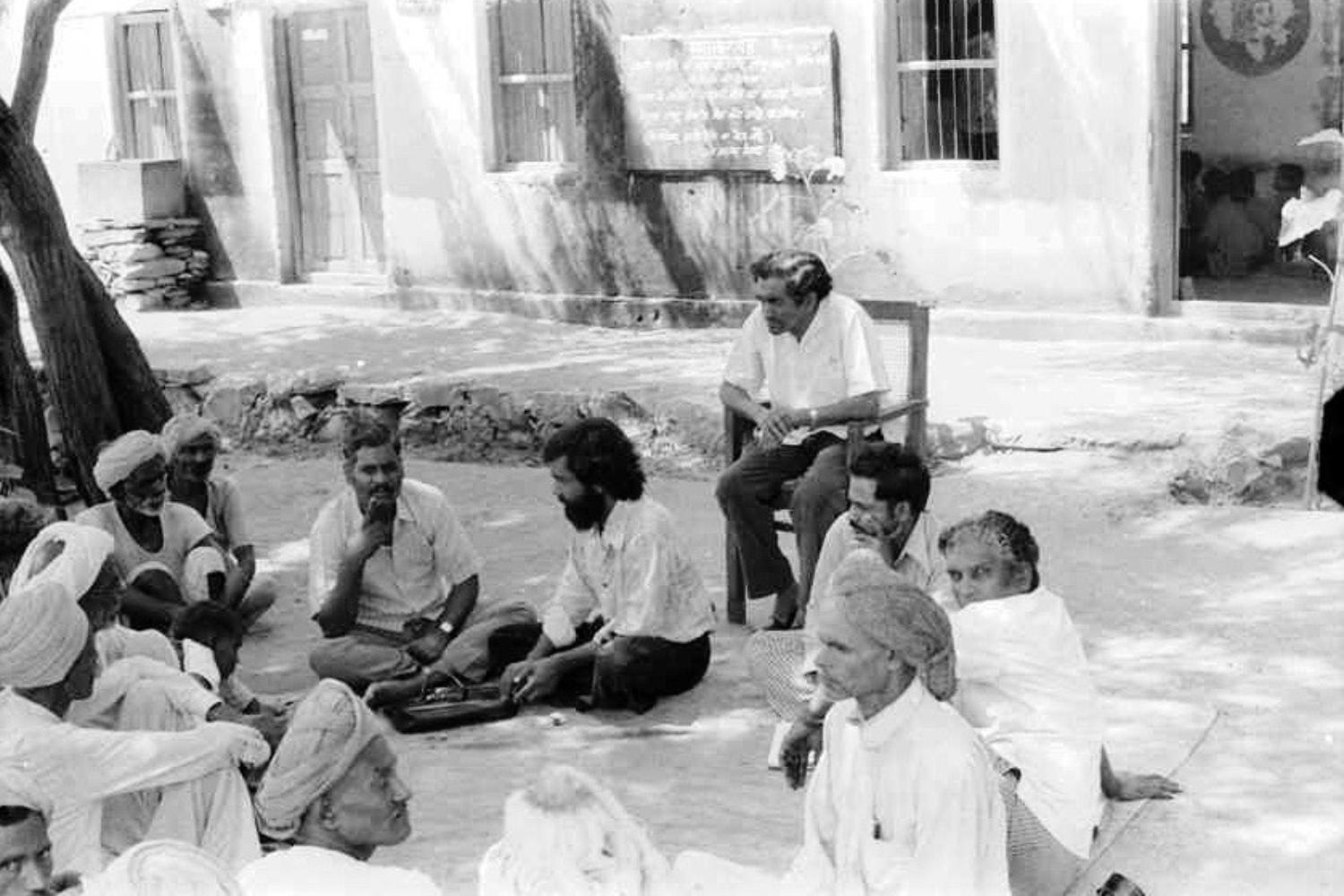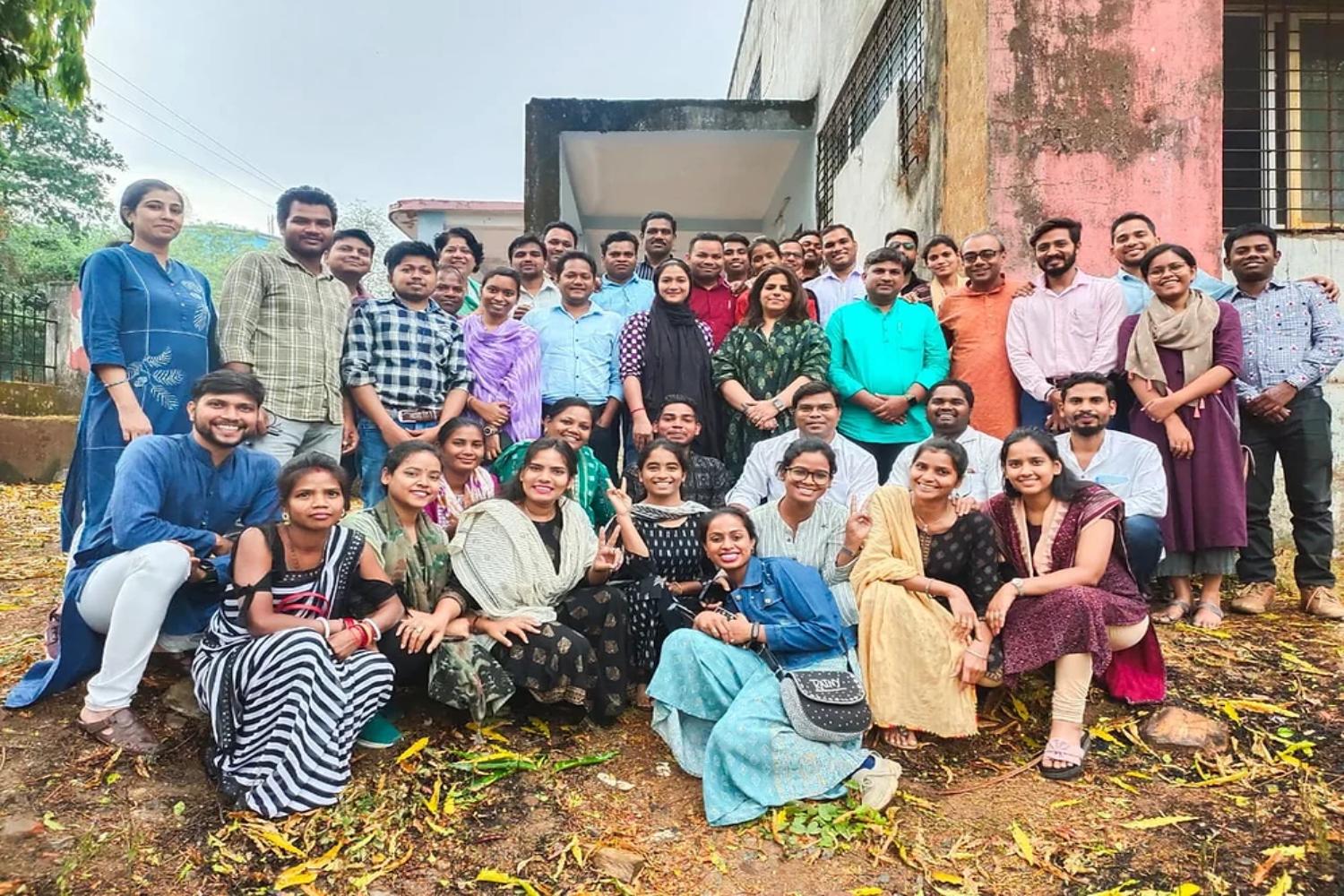Governance of CSOs: the importance of community, participation and trust
In the Ground Zero piece, we take these concerns forward by illustrating the importance of community, participation, and trust through the governance practices of three grassroots CSOs doing important work on the ground.

In the realm of social impact, effective leadership and robust governance are crucial to the success and sustainability of organizations working with marginalized communities. How these organizations nurture leadership, structure their governance, and engage with their communities can significantly influence their ability to create lasting change.
This ground zero piece explores the leadership and governance models of three organizations—Makkala Jagriti (MJ), Karunar Kheti Trust (KKT), and Adivasi Munnetra Sangam (AMS)—each of which has developed a unique approach to aligning their internal processes with their mission.
By focusing on leadership development, community engagement, and strong, democratic governance structures, these organizations serve as powerful examples of how thoughtful, mission-driven strategies can foster resilience, accountability, and long-term impact in the communities they serve.
Makkala Jagriti – Nurturing talent
Founded in 2003, Makkala Jagriti (MJ) was established to address the educational disparities faced by children in marginalized communities. What began as a single learning center in urban, poor areas quickly expanded as MJ formed strong partnerships with government bodies. By 2017, the organization had launched the Early Childhood Care and Education (ECCE) Program in collaboration with state authorities, while also continuing to empower marginalized youth through its flagship Youth Empowerment Program (Yuva Jagriti).
According to Sunayana Chatrapathy, CEO of Makkala Jagriti, the organization fosters an environment where team members are encouraged to take initiative. When someone expresses interest in taking on more responsibilities, they are asked to draft a job description outlining their primary duties and goals.
This proactive approach ensures greater buy-in from employees. It also aligns their ambitions with the organization’s objectives. This sets them up for success.
Transitioning from individual contributor roles to team management can be challenging. Therefore, MJ provides tailored leadership training programs to support these shifts. The organization’s team structure is designed with clear roles, starting with facilitators who work directly with children and youth at the field level. These facilitators are overseen by coordinators. Many of them have risen from within the organization.
MJ invests in these coordinators by offering a comprehensive six-month leadership capacity-building program. The program covers critical areas. These include personal effectiveness, self-awareness, self-management, team building, culture setting, and leadership development. The goal is to equip coordinators with the skills needed to become effective leaders and role models, who can align their strengths with the organization’s goals.
Above the coordinators are the managers. They typically oversee groups of coordinators and are integral to MJ’s mid-level leadership. To ensure that these managers are well-prepared, MJ offers advanced leadership development programs. This includes one-on-one coaching sessions with Board members or external mentors.

Recently, MJ introduced the Clifton-Strengths assessment to help team members understand and leverage their natural talents. By focusing on strengths rather than weaknesses, the organization has fostered more effective collaborations and a positive work environment.
Sunayana shares the story of Sarita (name changed), an employee who joined MJ as a facilitator. With consistent mentoring from her manager and participation in MJ’s leadership programs, Sarita’s outlook transformed. She became one of MJ’s top facilitators and a model for best practices.
Supported by the organization, Sarita transitioned into a coordinator’s role. She manages several schools now. She has also undergone the six-month leadership capacity-building program. This training enhanced her personal and team effectiveness. It also helped her develop empathy and leadership skills. As a result, she was promoted as a senior coordinator.
When the program manager went on maternity leave, Sarita, along with another senior coordinator, stepped up to manage the program. This challenging role required her to handle donor management, team management, and reporting responsibilities.
Today, Sarita is a mentor within the organization, nurturing and growing other team members. Even after her maternity break, Sarita returned seamlessly to her role. She exemplifies MJ’s commitment to leadership development and internal growth.
Sunayana adds, ‘Our non-threatening and inclusive approach ensures that there is trust and autonomy in decision-making for facilitators. It helps in leadership development’.
To broaden perspectives and keep the team informed about external developments, MJ exposes its members to other organizations. This could involve visiting organizations in other states and districts, and applying the insights gained to their roles. Investing in capacity building at all levels, especially in leadership, is a top priority at MJ.
A significant aspect of MJ’s governance is the Extended Leadership Team (XLT). It consists of all the heads of various functions and programs. This 15-member team is responsible for democratic decision-making and collective thinking. It also ensures accountability across the organization. Decisions made by the XLT are thoroughly discussed and agreed upon before being presented to the Board.
There is a clear governance policy with defined roles and responsibilities for Board members. This structure has evolved over the last three to four years, with a focus on meaningful discussions and empowering the team.
The investment in leadership development directly enhances the effectiveness of these governance structures, ensuring that decision-making is informed, inclusive, and aligned with the organization’s mission.
The diverse Board plays an active role in mentoring and guiding the organization. Its activities go beyond regular governance to provide strategic inputs. Board meetings, held quarterly, are effective and focused on decision-making.
Board members contribute their expertise and mentor program managers. They provide inputs that extend beyond typical governance responsibilities. MJ also ensures that its policies and practices remain compliant with external regulations through regular Board reviews and annual strategy assessments.
Board members Joy Srinivasan, Rangarajan Padmanabhan and Viswanath Gopalakrishnan, all with extensive experience in learning and development, have played key roles in MJ’s internal capacity-building initiatives.
Viswanath introduced the strengths-based approach to the organization. This emphasizes the importance of building on individual strengths.
Two years ago, when the team was grappling with managing an expanding workload, the Board facilitated a day-long workshop. It helped consolidate MJ’s programs. Instead of running disconnected programs in different communities, the organization decided to implement a strategy of working with every age group in each community to maximize impact. The Board also provides ongoing support in areas like communications and fundraising.
Makkala Jagriti’s commitment to leadership development and structured governance has created a resilient and agile organization. By investing in capacity building at all levels and aligning leadership pathways with governance structures, MJ ensures that its mission is upheld through informed, inclusive, and strategic decision-making.
It is their belief that they can deliver the best to children when they harness their own strengths and potential fully. It is a transformative journey for all.
Karunar Kheti Trust: building trust in governance
Founded in 2019, Karunar Kheti Trust (KKT) is a community-based, rural, non-profit organization located in a rural area of Assam. The region KKT works in comprises of tea plantations (where it is rooted) and traditional villages.
KKT’s mission is to work at the pace of its rural community for contextually empowering development in the interconnected areas of education, health and livelihood. A guiding principle of the organization is of community participation, thus ensuring that all its staff, leaders, teachers and administrators are from the local area.
Co-founder Arjun Trivedi is aware that being the son of a tea plantation manager has afforded him many exceptional privileges. These include an education abroad. However, he also understands that he and his family are a part of the region’s larger community.
He always knew that working in such a place, to build a community-rooted organization in the context of tea-plantations with community participation at its un-compromisable core, was going to be anything but easy. As he says, “Nothing honest and unprecedentedly new is ever easy.”
In the early stages, the community was puzzled, curious and skeptical of KKT’s approach, and at Arjun’s return from the USA to spearhead the initiative. However, trust gradually deepened between Arjun and the community and developed to include the organization. Simultaneously, KKT transformed into a collaborative experiment.
Arjun considers this to be a foundational milestone and success. People’s puzzled curiosity and skepticism began to transform to positive engagement. This spanned an eagerness to probe and question from a distance to directly explore, experience and contribute to what was being done.
A key aspect of KKT’s approach is the very intentional formation of its Board of Trustees entirely from the community members. This decision was made despite most advice being against it.
The Board has a diverse group of individuals from the tea-plantation community as members. It includes women who pluck tea leaves, men who work in its tea factory, its clerical staff, and one of its prominent and influential local student union leaders who is highly, and arguably, rightfully, critical of tea-plantations.
Concerns were raised about the Board members’ complete lack of not just formal and modern but any leadership experience. However, such concerns were respectfully and humbly set aside as necessary risks for creating a Board that genuinely represents the inordinately larger community beyond the extremely few who have climbed up the dominant socio-political systems.
The inclusion of such community members, particularly the women who pluck tea leaves, in leadership roles was a deliberate choice. They may not have initially viewed themselves as leaders. However, their selection over seasoned governance experts reflects KKT’s central beliefs.
A core part of KKT’s approach lies in building leadership capacity from the ground up and from those who are and have been unrepresented. KKT sees such an approach to leadership development as uncompromisable to the organization’s mission.
Arjun emphasized that a part of the successes of this experiment has been the commitment to honesty and truthfulness. These qualities are often obscured in rural areas and its public systems, spanning education to political systems.
He noted that honesty is tucked away deep in the hearts of people and is rarely practiced in outward systems. However, when practiced with the resonance of the inner and the outward, it generates true curiosity to know and do more, and fosters genuine community participation.
Although the process of building such trust is slow, at the rate of generations, KKT’s approach is, therefore, deliberate and patient. Its focus is on long-term quality and integrity. This, Arjun believes, must become deeply rooted to become a multi-generational endeavor.
Arjun also reflected on the challenges of discussing and working from truth and honesty in Board meetings, spanning inner worldviews to practical systems of accountability. The Board was carefully composed of members with exceptional integrity. Even then members anticipated that their character would be scrutinized and tested within the community.
They knew that they would have to work hard. On the basis of their faith and courage, they had to rise to the challenge. Today, Board meetings are conducted systematically, with clear agendas, minutes, and follow-ups. The Board typically meets once every three months to ensure ongoing governance and oversight.
Such deliberate little steps to build a community-rooted and participatory organization still has miles to go, with more failures than successes. However, it’s the only way forward. It is giving KKT its uniquely grounded coherency.
This spans its areas of core work in education and livelihood. It also ranges to its administration, management and leadership. Several aspects require gross to finer refinements. However, there is a growing culture of being able to focus on the truth and homegrown knowledge within the organization. This allows for confident discussions spanning KKT’s philosophy, to the nitty-gritties of practical action.
KKT’s journey exemplifies the power of community-led governance and the importance of integrity in building trust and practical systems. By prioritizing local representation and fostering a culture of honesty, KKT has laid a solid foundation for long-term community development and empowerment.
As the organization continues to grow, it remains dedicated to deepening its roots within the community while spreading its branches across the wide world in a large resonance. This will perhaps ensure that its mission of education, livelihood and health is realized in meaningful and sustainable ways.
Adivasi Munnetra Sangam: developing democratic governance structures
Adivasi Munnetra Sangam (AMS) is a social movement for Adivasi empowerment that emerged in the Nilgiri Hills of Tamil Nadu. It began as a struggle for land rights. AMS went on to significantly impact livelihood, education, health, not to mention legal rights. Institutions working on livelihood, health, education and others have organically grown out of that movement.
B Ramdas from Viswa Bharati Vidyodaya Trust, the education wing of AMS shares, “There was a conscious decision not to centralize power in one large institution. So, each sector set up different ones, thus avoiding the fate of most NGOs. This meant preserving a culture of grassroots democracy. It was also the express intent of the founders that each of these institutions would be eventually handed over to the community. Thus, it was also important to have smaller manageable structures.”
In many other situations, institutions are established first, and efforts are then made to build a community around them. However, in this case, an organized community was already present. The institutions and governance structures then developed in tandem with it.
In Tamil Nadu, AMS operates in over 300 hamlets and villages across two taluks in Gudalur Block. The team has divided these into eight clusters or areas. Each has five community leaders. Together, they form a core group of 40 people who meet regularly. From this group, AMS office bearers are elected.
It’s important to note that AMS is not a registered entity—it remains very much a movement. Despite this, it is robust at the village level. From the outset, the team has consistently recruited staff from within the community for schools, hospitals, and other areas of work. For example, when a teacher is needed, the eight areas are informed, and the community finds a candidate.
This dynamic is different from most organizations. It applies across all domains they work in—health, livelihood and education, etc. Some of the founders started as Board members of these organizations. However, over time, they have stepped aside, allowing the community to take over. Today, the majority of Board members in our organizations come from the community itself.
Ramdas shared that decision-making largely happens at the staff level. For instance, in health, there is a working committee composed entirely of community representatives. They meet monthly and make decisions for the organization, which the Board later ratifies. This structure ensures clear communication, as everyone is involved and informed.
Each cluster or area functions like an independent organization, with leaders from various sectors—health, livelihood, education—working together weekly to plan for their area. Once a decision is made at that level, the Board supports it.
At the village and area levels, everyone collaborates. This ensures no divisions between institutional roles. This collective responsibility is crucial. It represents an ideological stance that drives their work.
Ramdas adds, “The AMS team has always emphasized that these institutions belong to the community, and they must take responsibility for them. The Board’s role is to support and train. However, the ownership lies with the community. This approach has been consistent across all our initiatives from day one, whether in education, health, or any other sector.
“In my case, for instance, I am a founder member of the Vidyodaya Trust. I was its Managing Trustee for some 20 years. Today I am not even on the Board of Trustees. I do not go to the school or office unless they want me there. There is a tremendous reluctance to hand over institutions to community members imagining that they can’t handle things. This is a very colonial mindset.”
Ramdas also discusses the challenge of bringing younger people on Board. The older generation has grown with them. However, many have moved on. The younger generation needs to be integrated into leadership roles.
As laws, funding processes, and management practices evolve, he feels that the younger generation is often better equipped to handle the rapid changes in technology and funding landscapes. AMS is working to bring them into leadership roles and prepare them for the future.
The team has also shifted focus from merely filling quotas of representation to finding people who can genuinely challenge and contribute to the organization. This is especially challenging within the tribal community, where questioning someone is culturally sensitive. However, it is essential for growth.
While there appears to be an ideological shift away from the concept of community ownership in modern governance structures, it remains the foundation of AMS’s work. The Sangam continues to operate in this manner, uncertain of what the future holds, but committed to its principles.
In conclusion
Makkala Jagriti, KKT and AMS exemplify diverse yet effective approaches to leadership development and governance, all rooted in community engagement. MJ fosters internal leadership growth through proactive training and a strengths-based strategy.
KKT, on the other hand, emphasizes community-led governance. Its Board is entirely composed of local community members. Its approach values trust, honesty, and long-term commitment to community development.
AMS, operating as a social movement, maintains a decentralized power structure, prioritizing grassroots democracy and community ownership of its institutions. Together, these organizations highlight the importance of aligning leadership and governance structures with the mission and values of their respective communities.
You may reach out to the organizations featured in this story at:
[email protected] (Makkala Jagriti)
[email protected] (Karunar Kheti Trust)
[email protected] (Adivasi Munnetra Sangam)




No approved comments yet. Be the first to comment!